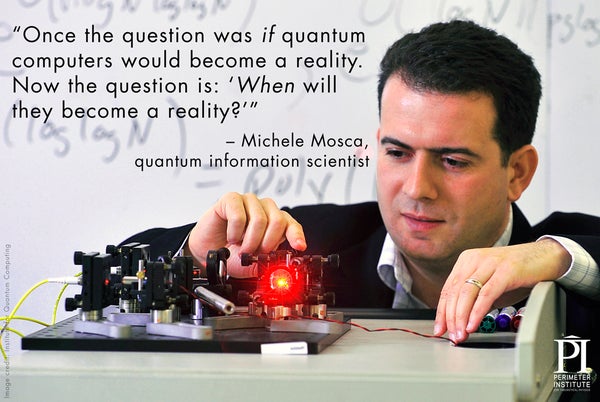In an age when hacking increasingly threatens national security and private companies alike, the possibility of quantum computing looks more and more attractive. By harnessing the special properties of atoms and subatomic particles ruled by the laws of quantum mechanics, physicists hope to design quantum computers that can calculate at speeds unheard of for today’s machines that would enable a whole new type of cryptography. The promise of quantum computers offers a double-edged sword, however, argues quantum scientist Michele Mosca of the Institute for Quantum Computing at Perimeter Institute for Theoretical Physics in Ontario, because such computers could likely crack most conventional cryptography easily, but also create their own unbreakable codes.
To explain what the advent of quantum computing could mean for cybersecurity, Mosca will present a public lecture tonight at 7 P.M. Eastern time to be broadcast live below. The talk, “As We Enter a New Quantum Era,” is part of a recurring public lecture series at Perimeter. Online viewers can pose questions by tweeting to @perimeter and using the #piLIVE hashtag.
On supporting science journalism
If you're enjoying this article, consider supporting our award-winning journalism by subscribing. By purchasing a subscription you are helping to ensure the future of impactful stories about the discoveries and ideas shaping our world today.
You can view videos of some past Perimeter physics lectures below:
How Mistakes Help Science [Video] Shape-Shifting Particles: Mysterious Neutrinos [Video] The Hunt for Dark Matter and Dark Energy [Video] Strange, Dense Matter: The Power of Neutron Stars [Video]
